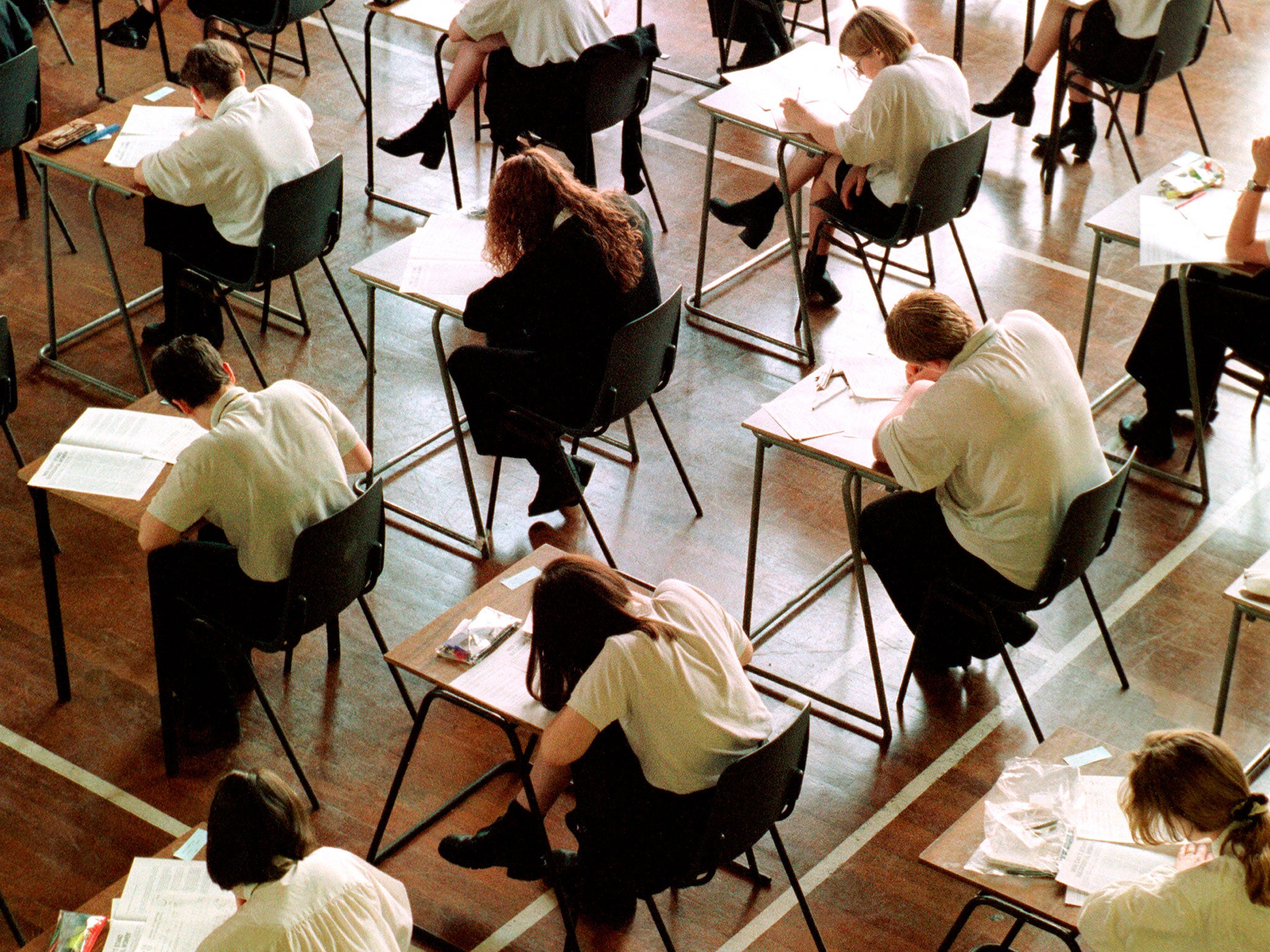A-level and GCSE questions to be ‘crowdsourced’ from teachers, exam board says
Cambridge Assessment, which owns the OCR exam board, will ask teachers to suggest their own questions to be considered in national exam papers

Your support helps us to tell the story
From reproductive rights to climate change to Big Tech, The Independent is on the ground when the story is developing. Whether it's investigating the financials of Elon Musk's pro-Trump PAC or producing our latest documentary, 'The A Word', which shines a light on the American women fighting for reproductive rights, we know how important it is to parse out the facts from the messaging.
At such a critical moment in US history, we need reporters on the ground. Your donation allows us to keep sending journalists to speak to both sides of the story.
The Independent is trusted by Americans across the entire political spectrum. And unlike many other quality news outlets, we choose not to lock Americans out of our reporting and analysis with paywalls. We believe quality journalism should be available to everyone, paid for by those who can afford it.
Your support makes all the difference.A-level and GCSE questions are to be crowdsourced from teachers, one of England’s major examinations boards has announced.
Cambridge Assessment, which owns OCR, plans to ask teachers to submit questions that they feel have stretched and challenged their pupils in lessons for consideration in national testing.
The board hopes to receive millions of questions, TES reported, but concerns have been raised that teacher influence could give some pupils an unfair advantage.
Cambridge Assessment research director Tim Oates told TES: “Really interesting questions which – put to children – encourage them to think hard, to integrate things, to understand things and challenge their ideas a bit, are really important.
“We don't think we should necessarily just commission those through asking a limited number of people.
“We want to know what questions teachers ask in the classroom and whether they were good for unlocking that bit of thinking or revealed that misconception.”
Currently, exam papers are drawn up by exam committees made up of teachers with detailed knowledge of each subject.
The new plans are at an early stage of development and would need to be approved by the exams regulator Ofqual in order to go ahead.
Mr Oates said: “I can see within three to five years' time we might be able to start doing some work [with crowdsourced questions] in formal examinations.”
The questions would have to go through quality assurance processes before being used for exams, which researchers said would be “technical, tough and expensive”.
All teachers would be able to access the questions chosen through an online question bank, so that they could be used in the classroom.
But Professor Alan Smithers, an assessment expert from Buckingham University, raised a concern that some schools might use the crowdsourced questions to game the system.
“The risk is that some schools begin to dominate the process [of submitting questions] and they’re probably the schools who do well at the moment and are very aware of the examinations game and will play it to their advantage,” he said.
“Other schools will think they’re too busy and have other things to do than have their brains picked. So they [OCR] need to be proactive and get to the schools that might not be enthusiastic about sending their ideas.”
Malcolm Trobe, interim general secretary of the Association of School and College Leaders, said: “The only potential weakness I can see in the system is, if I'm sending in questions and using the same questions in preparation for the examination, if they then turn up on the exam paper it advantages those youngsters because they're seeing a question they're familiar with.
“You're going to have to find a way of overcoming that.”
Mr Oates said schools already guessed exam questions, however, and it was already possible to prepare pupils for likely questions using past papers.
He said the crowdsourced approach would not create unfairness because there would be so many questions in the pool that teachers would have little incentive to drill pupils for any particular question.
He added that no exam paper would be made up entirely of crowdsourced questions.
Join our commenting forum
Join thought-provoking conversations, follow other Independent readers and see their replies
Comments